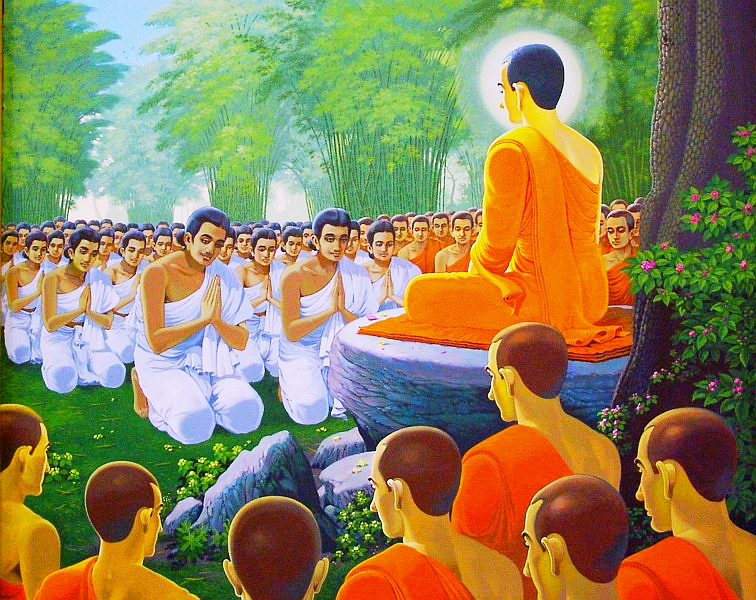Joy — sukkha
Joy, the Pali word sukkha (Sanskrit su-kha) is usually translated as happiness. As the opposite of duhkha, however, it connotes the end of all suffering, a state of being that is not subject to the ups and downs of change – that is, abiding joy. It would be difficult to find a more thoroughly researched definition of joy than the Buddha’s. If we can trust that at least the outline of truth remains in the legends of his life, then his questionings just before going forth to the Four Noble Sights were chiefly concerned with the search for absolute joy. What anyone could want of worldly happiness, Prince Siddhartha surely had, with the promise of much more. But the young prince scrutinized the content of worldly happiness much more closely than the rest of us, and his conclusion was that what people called joy was a house of cards perched precariously on certain preconditions. When these preconditions are fulfilled, the pleasure we feel lasts but a moment, for the nature of human experience is to change. And when they are not fulfilled, there is longing and a frustratingly elusive sense of loss; we grasp for what we do not have and nurse the gnawing desire to have it again. To try to hold on to anything – a thing, a person, an event, a position – merely exposes us to its loss. Anything that changes, the Buddha concluded, anything in our experience that consists of or is conditioned by component sensations – the Buddha’s word was samskaras – produces sorrow, not joy. Experience promises happiness, but it delivers only.
~Anonymous, The Dhammapada
















